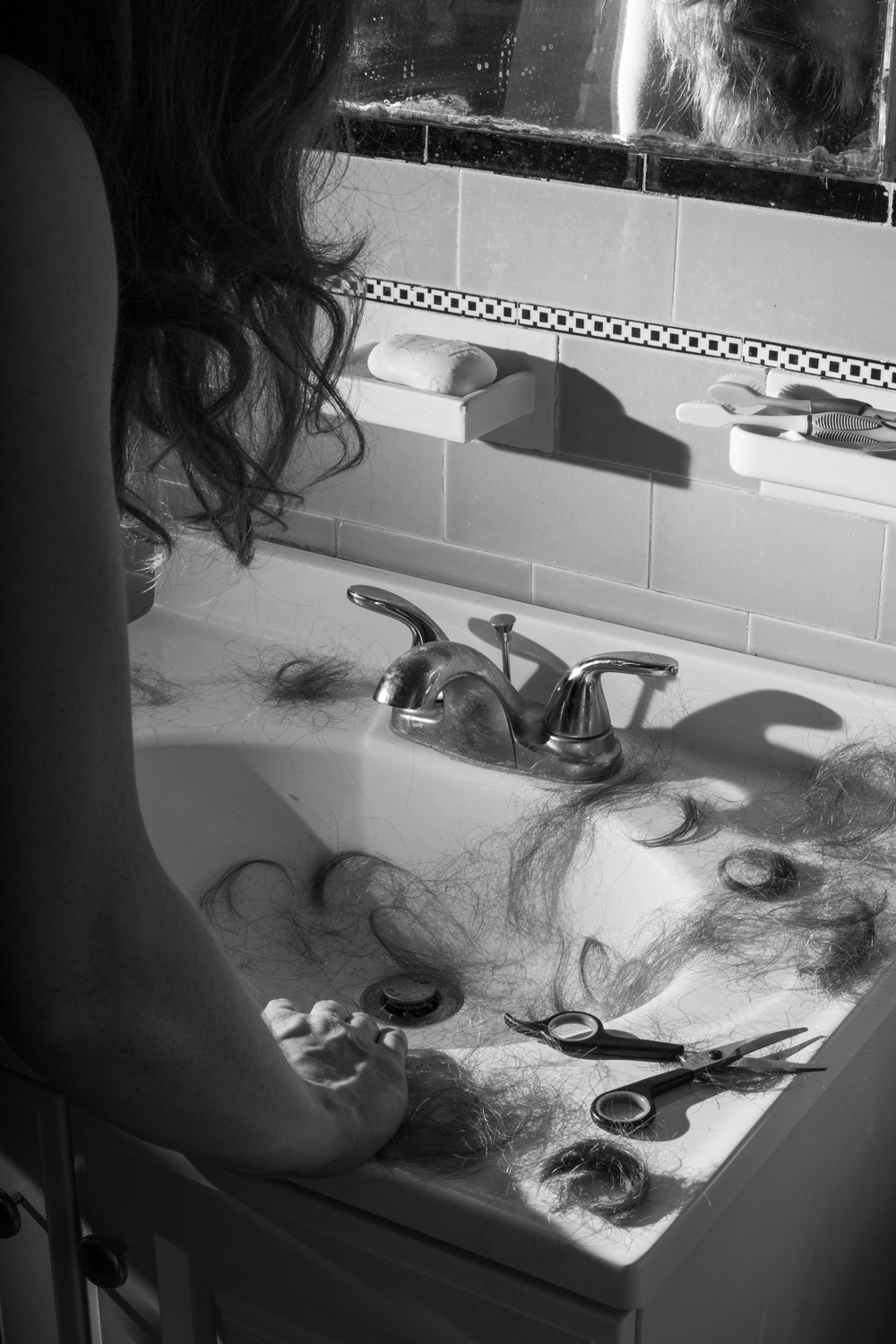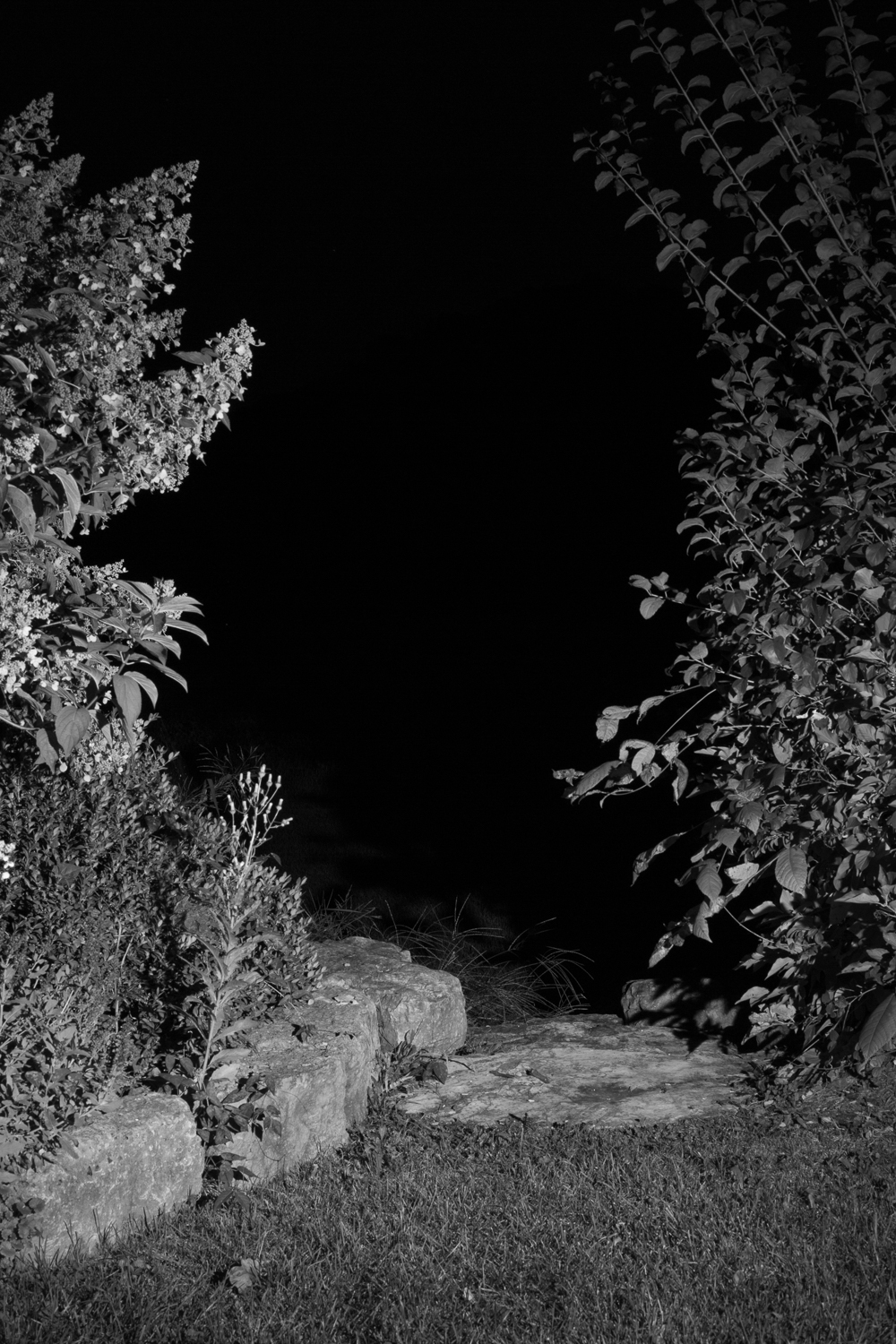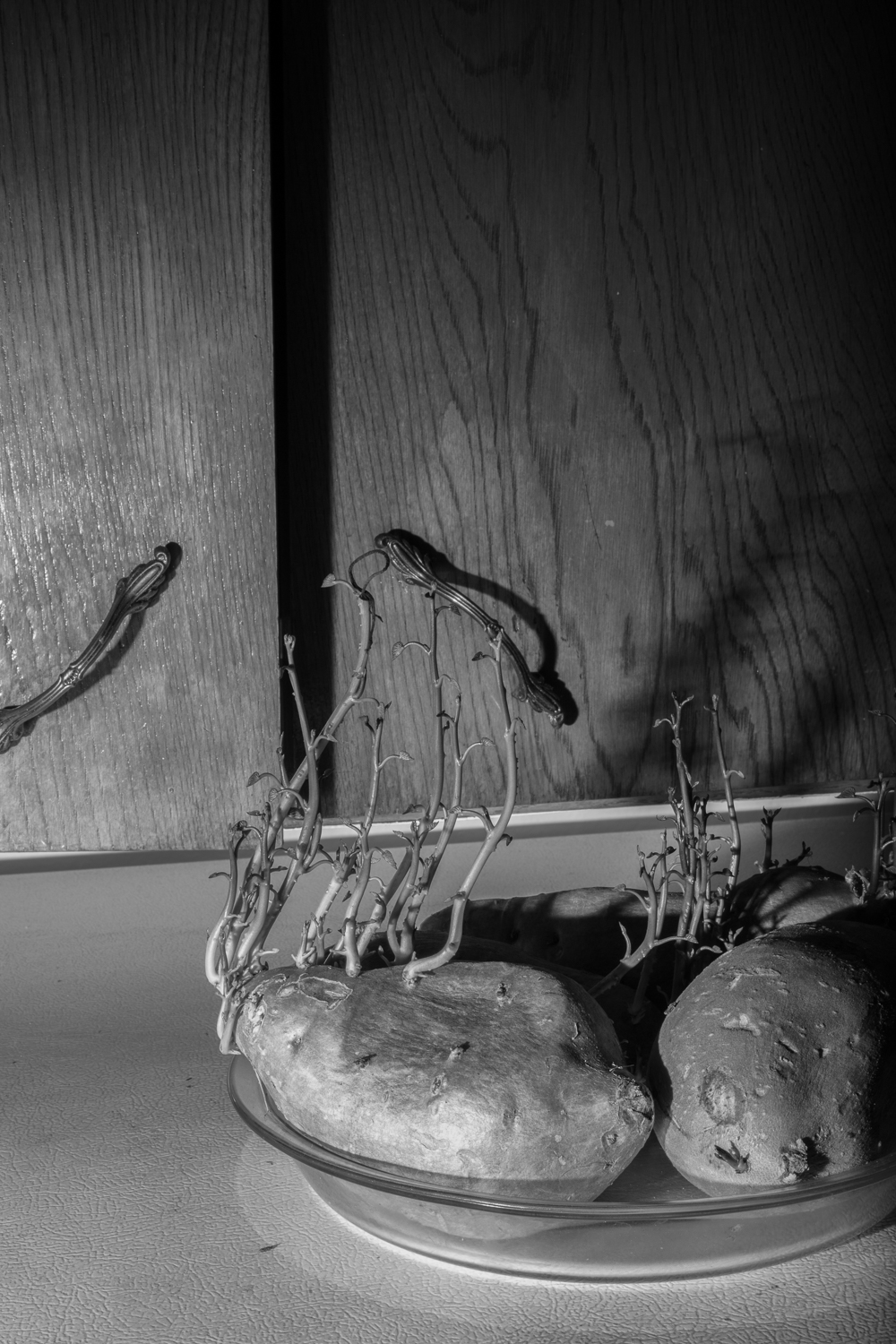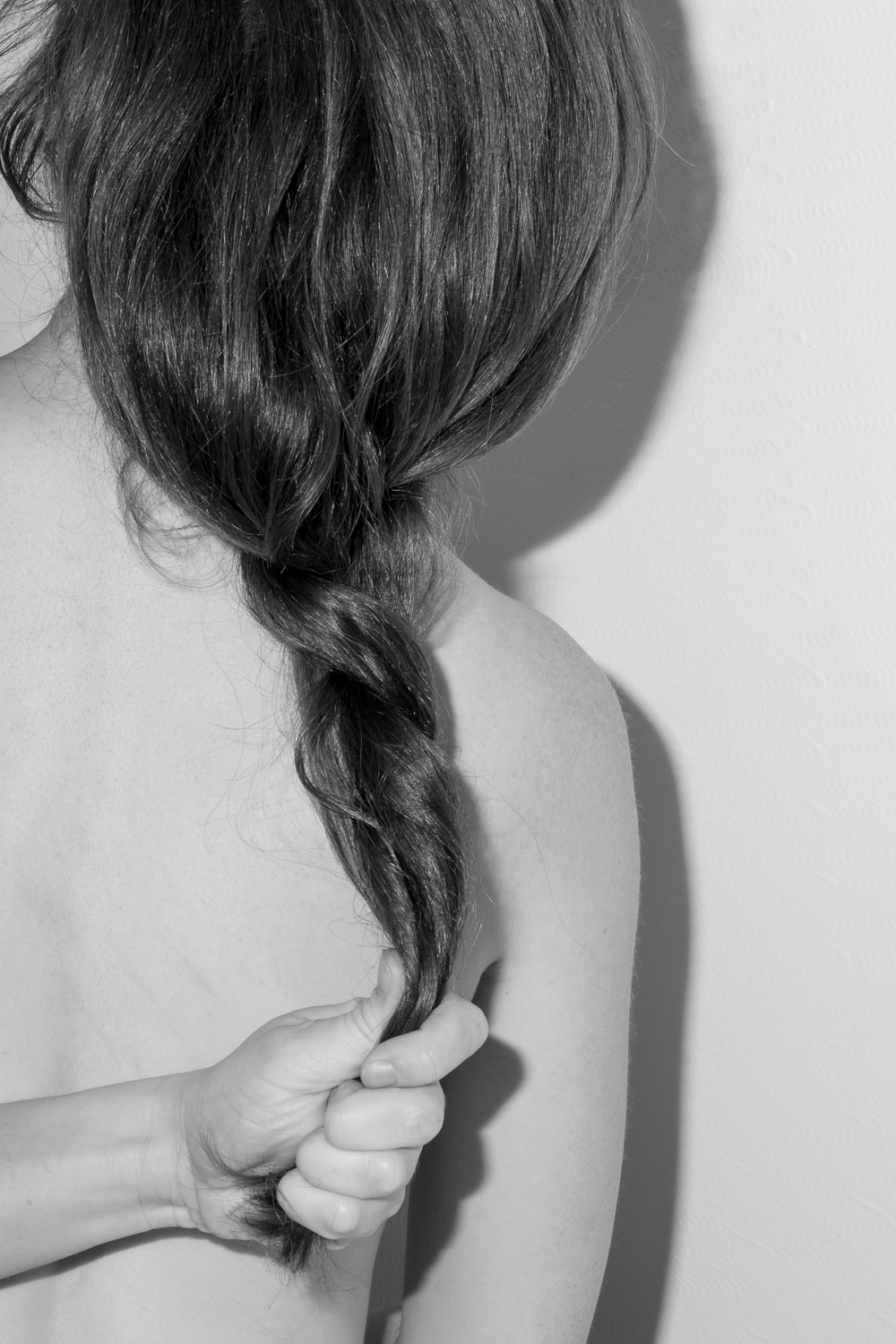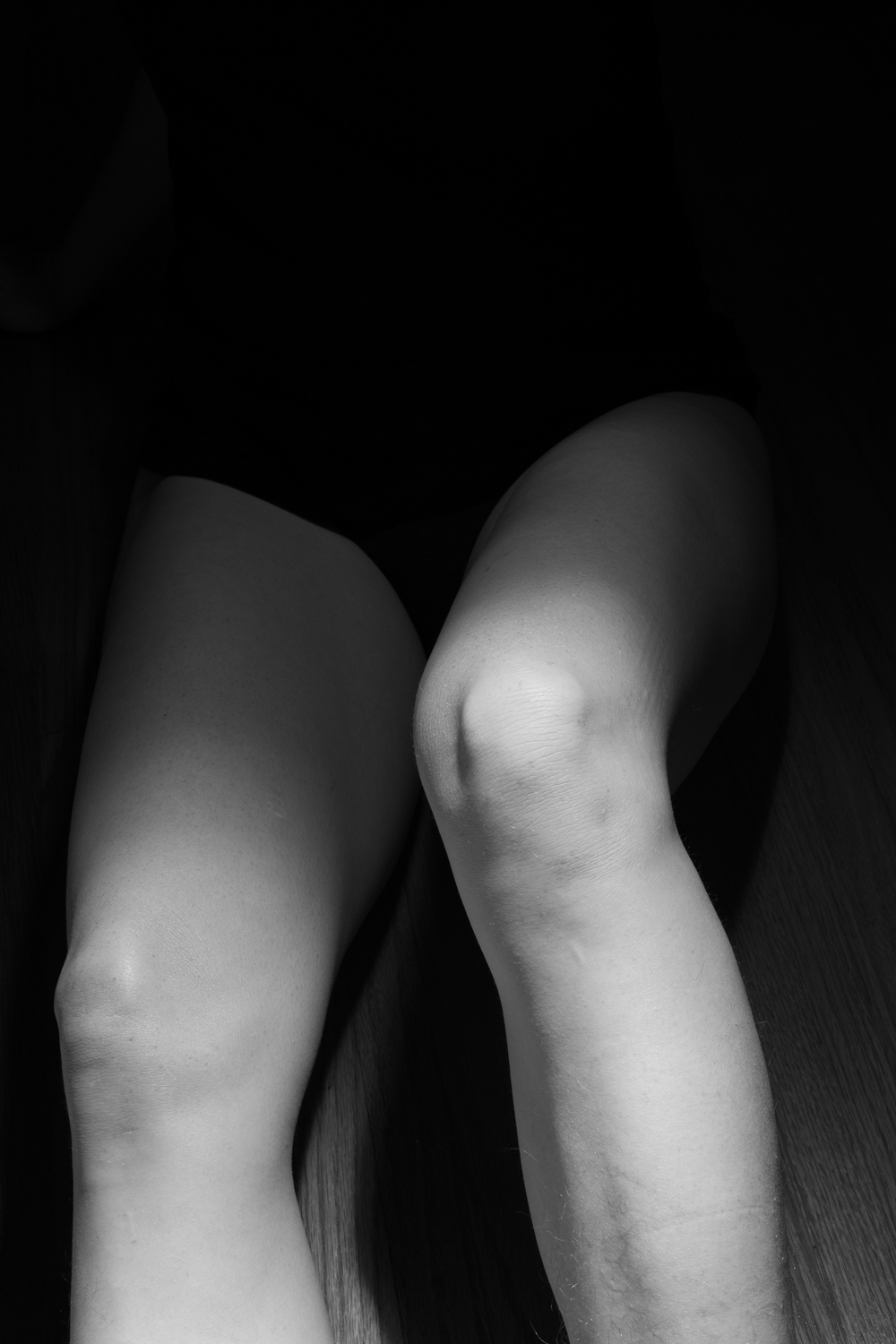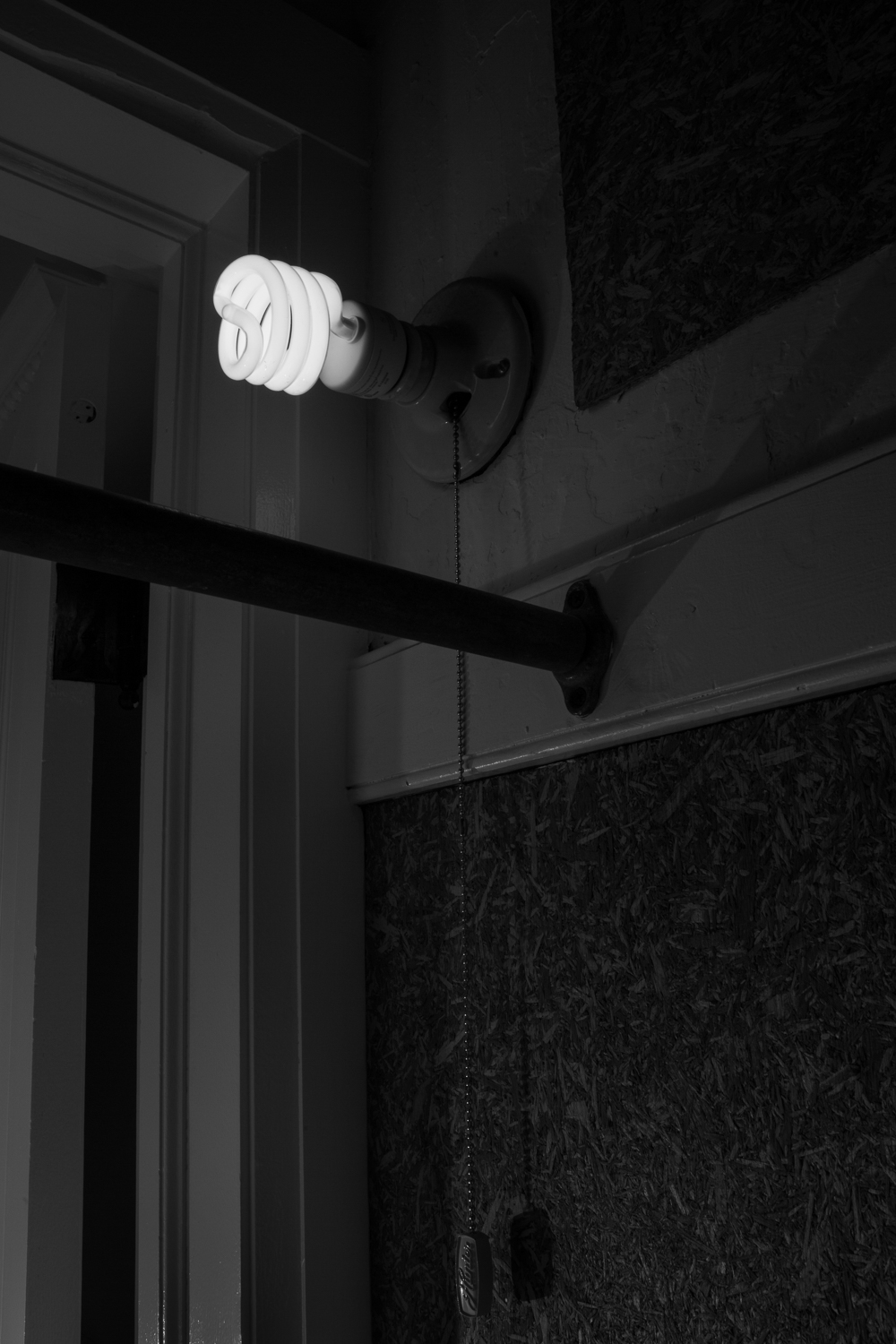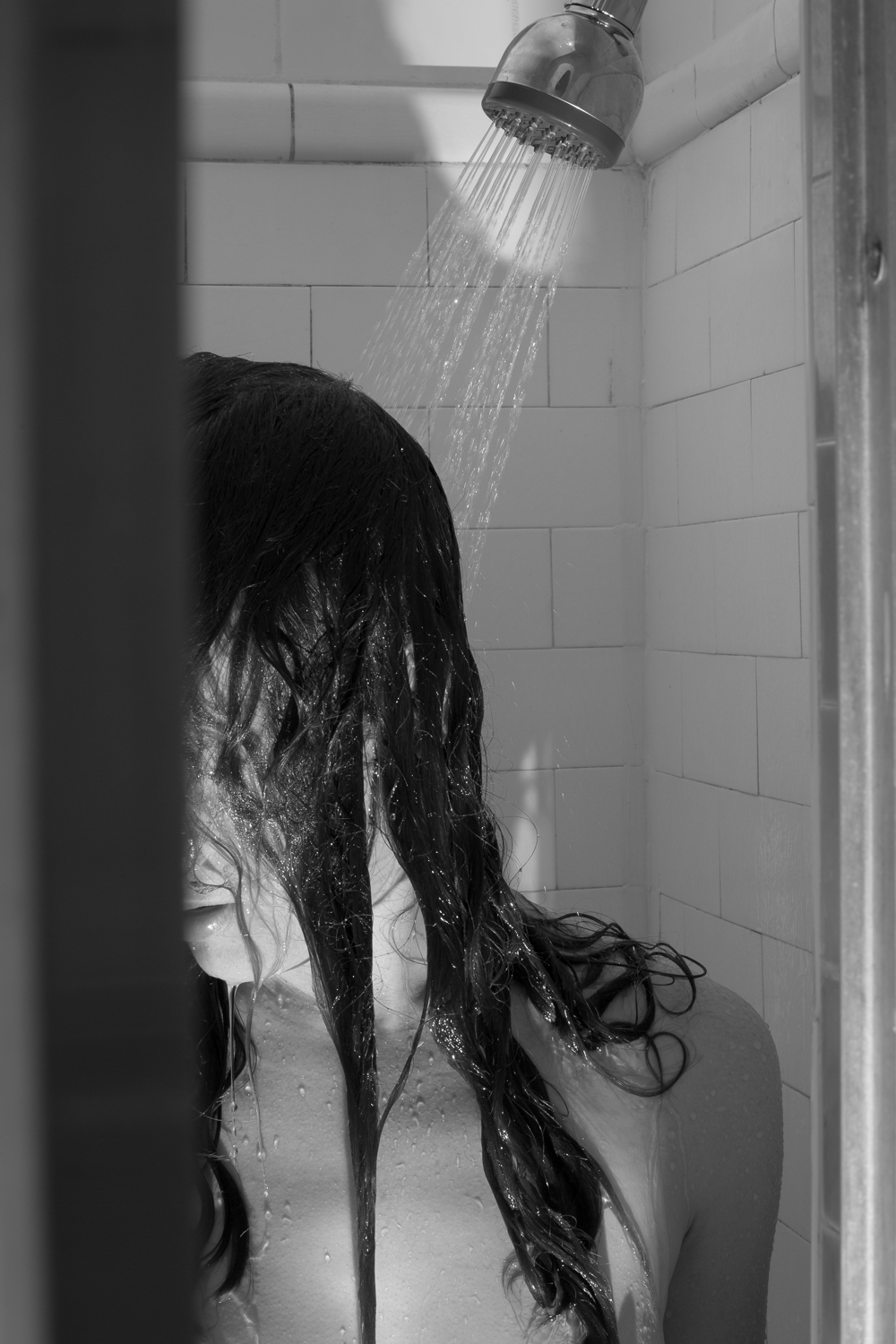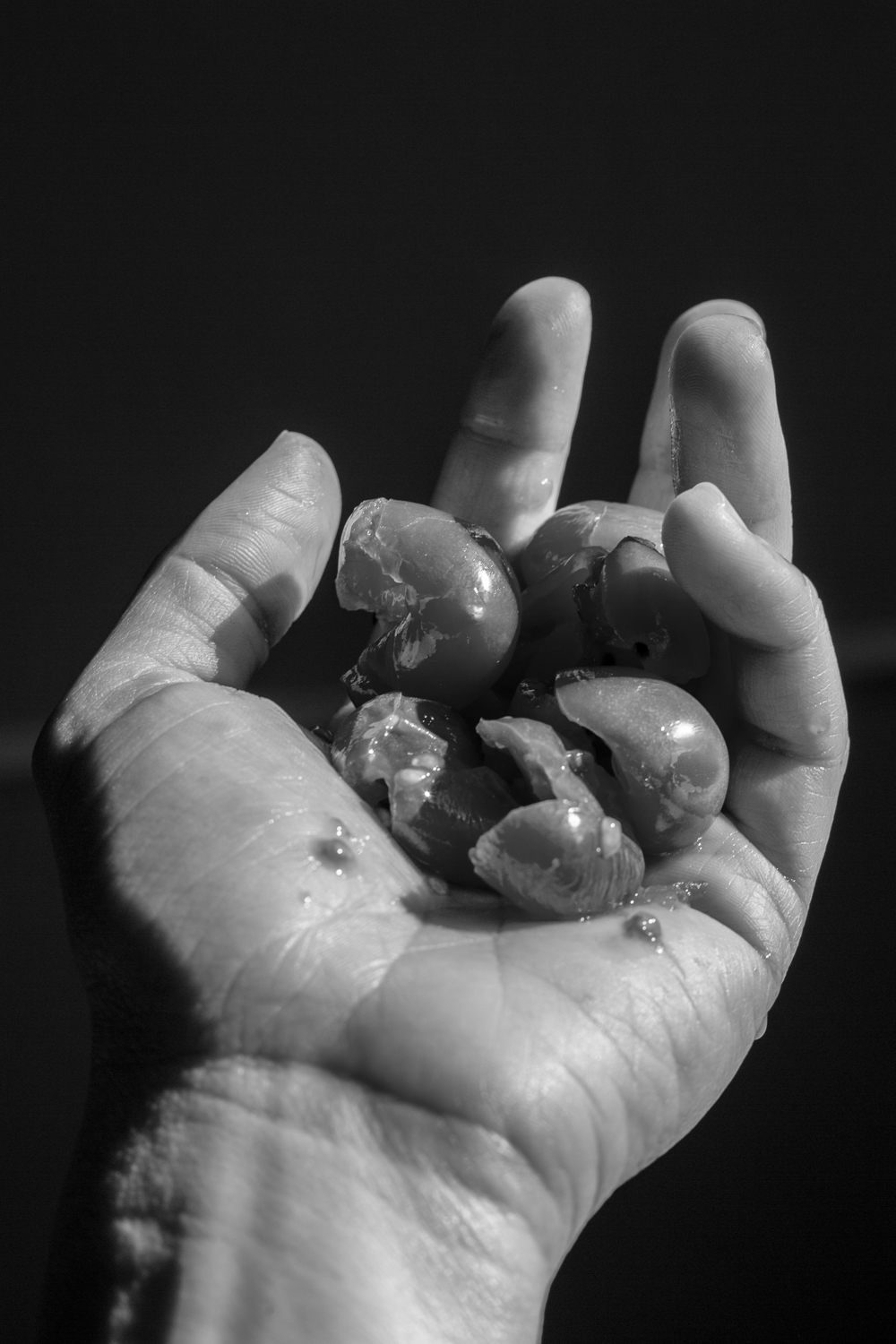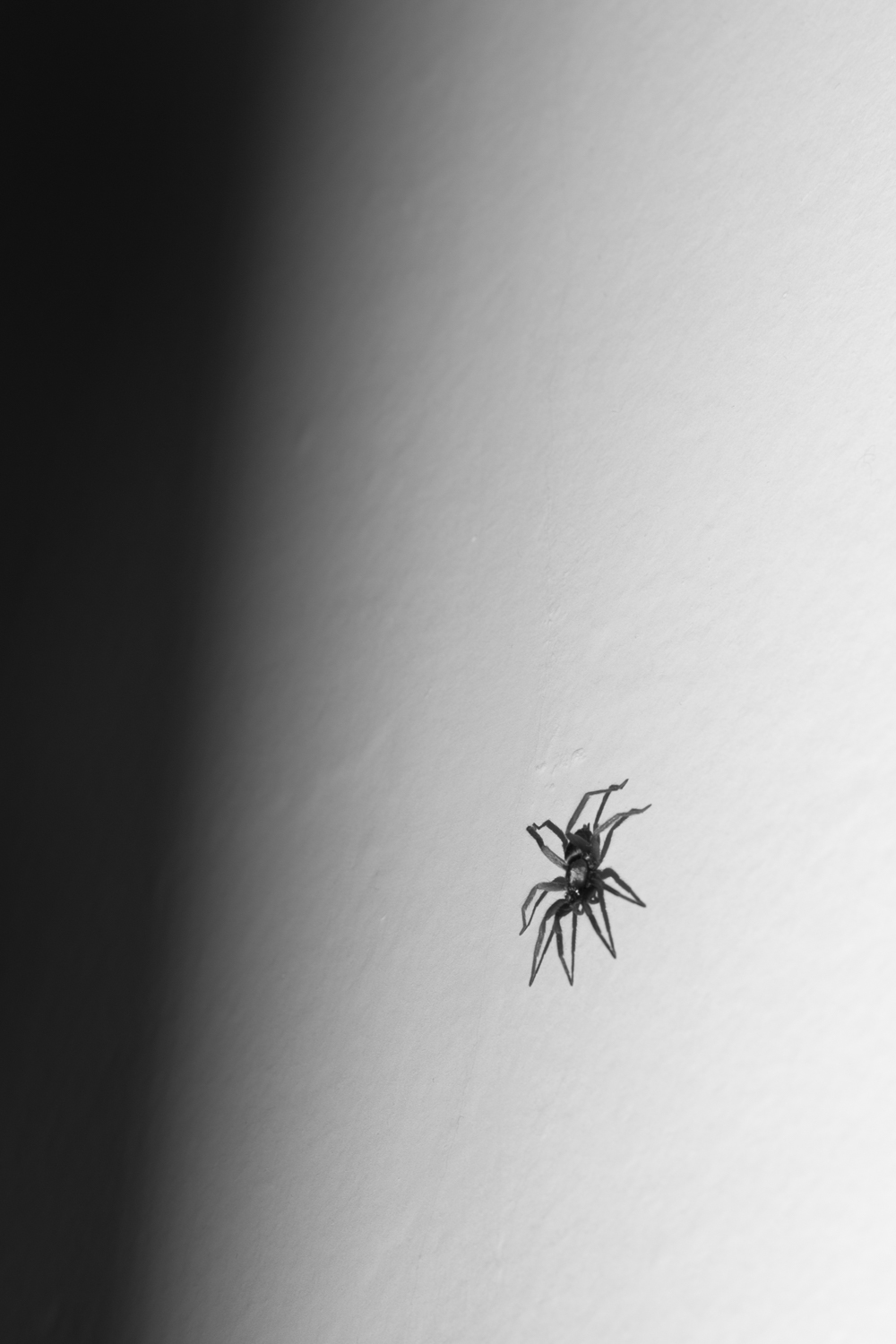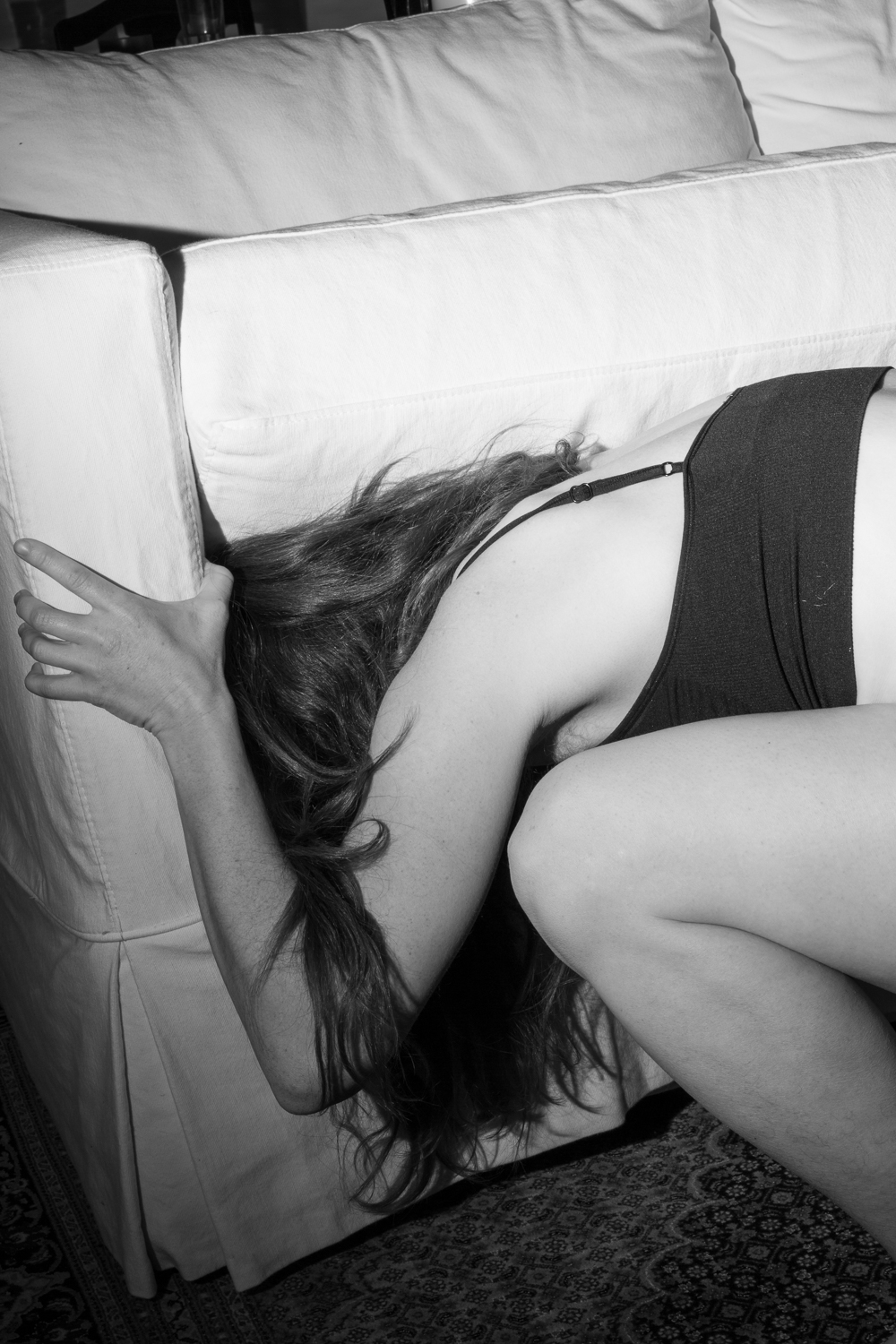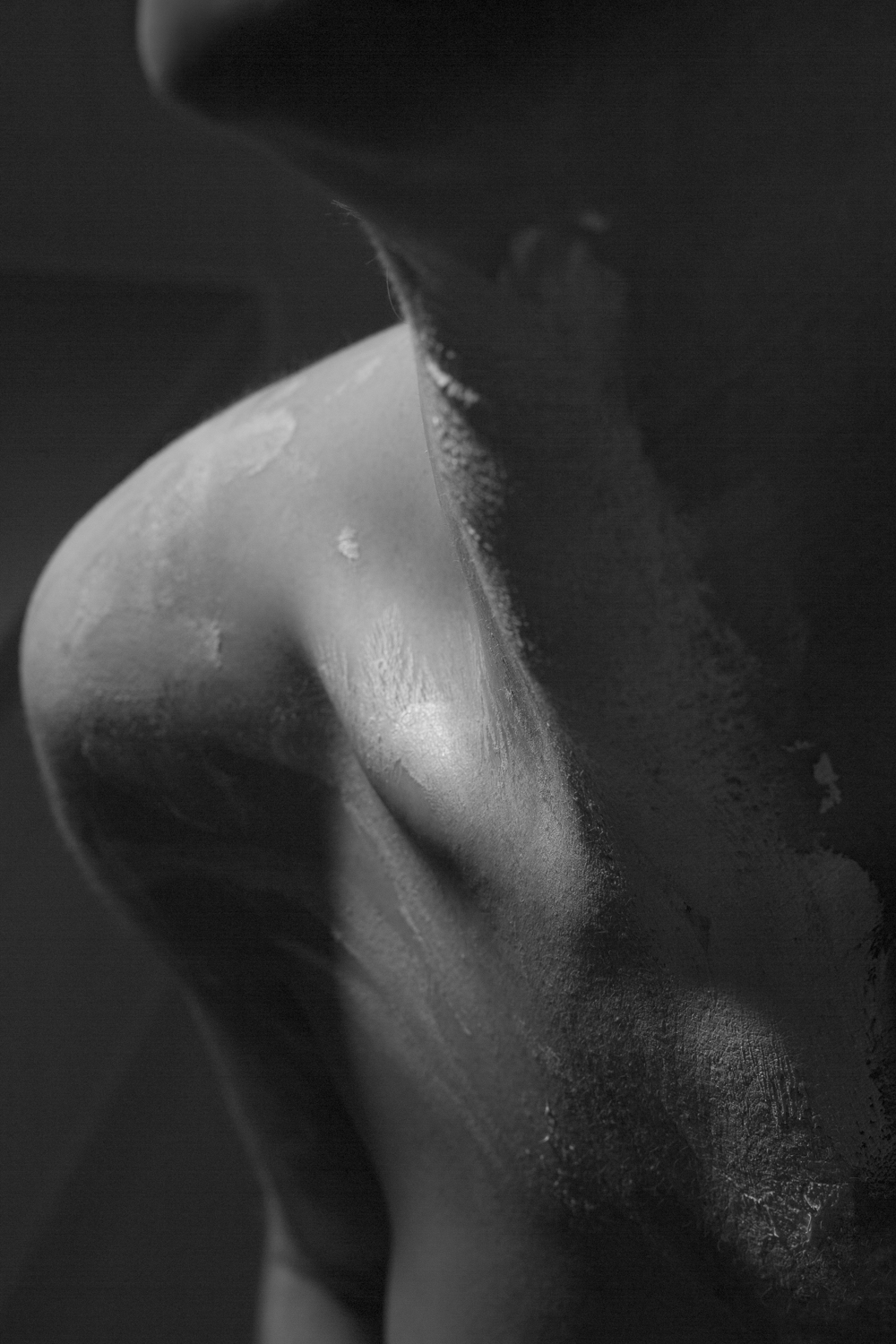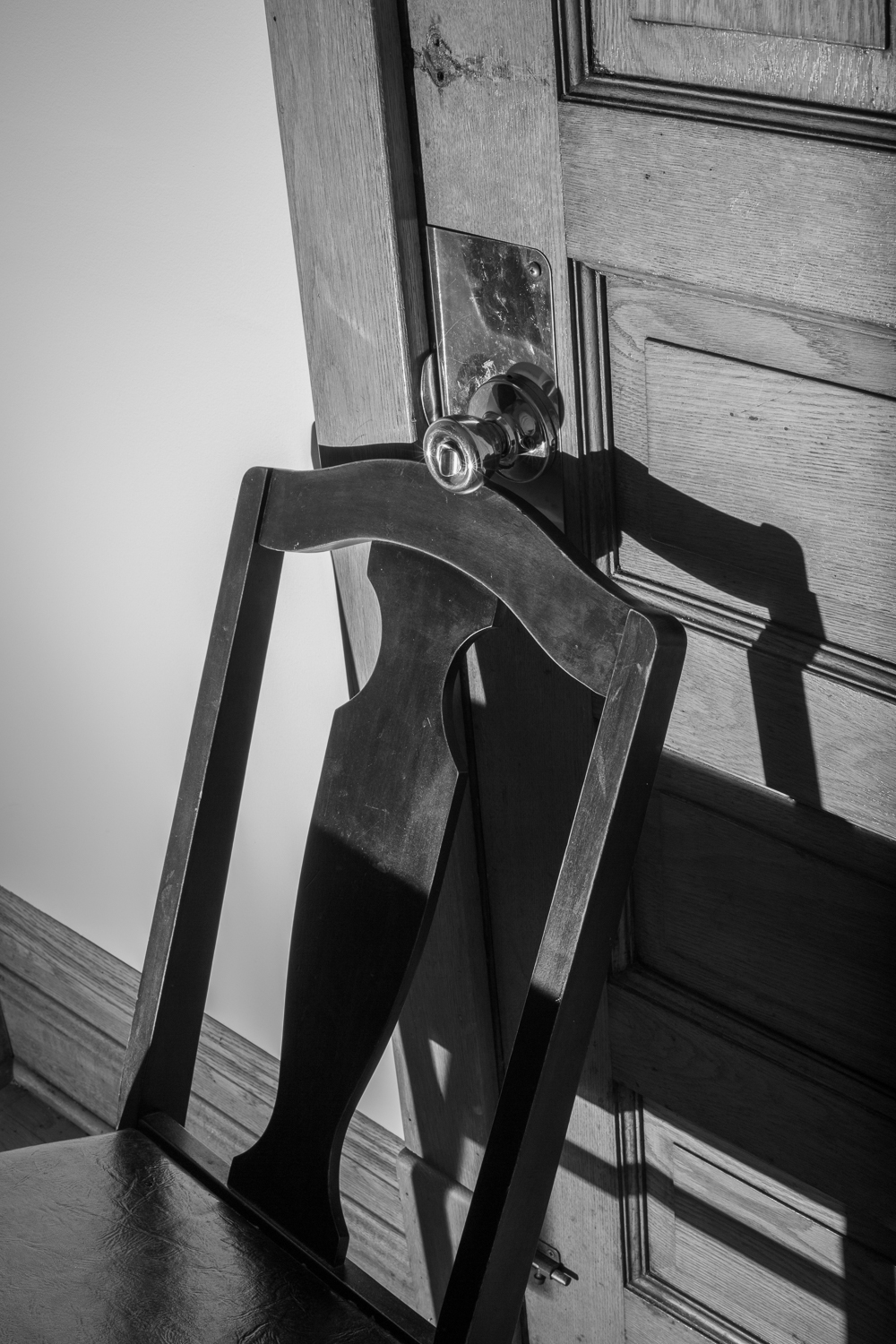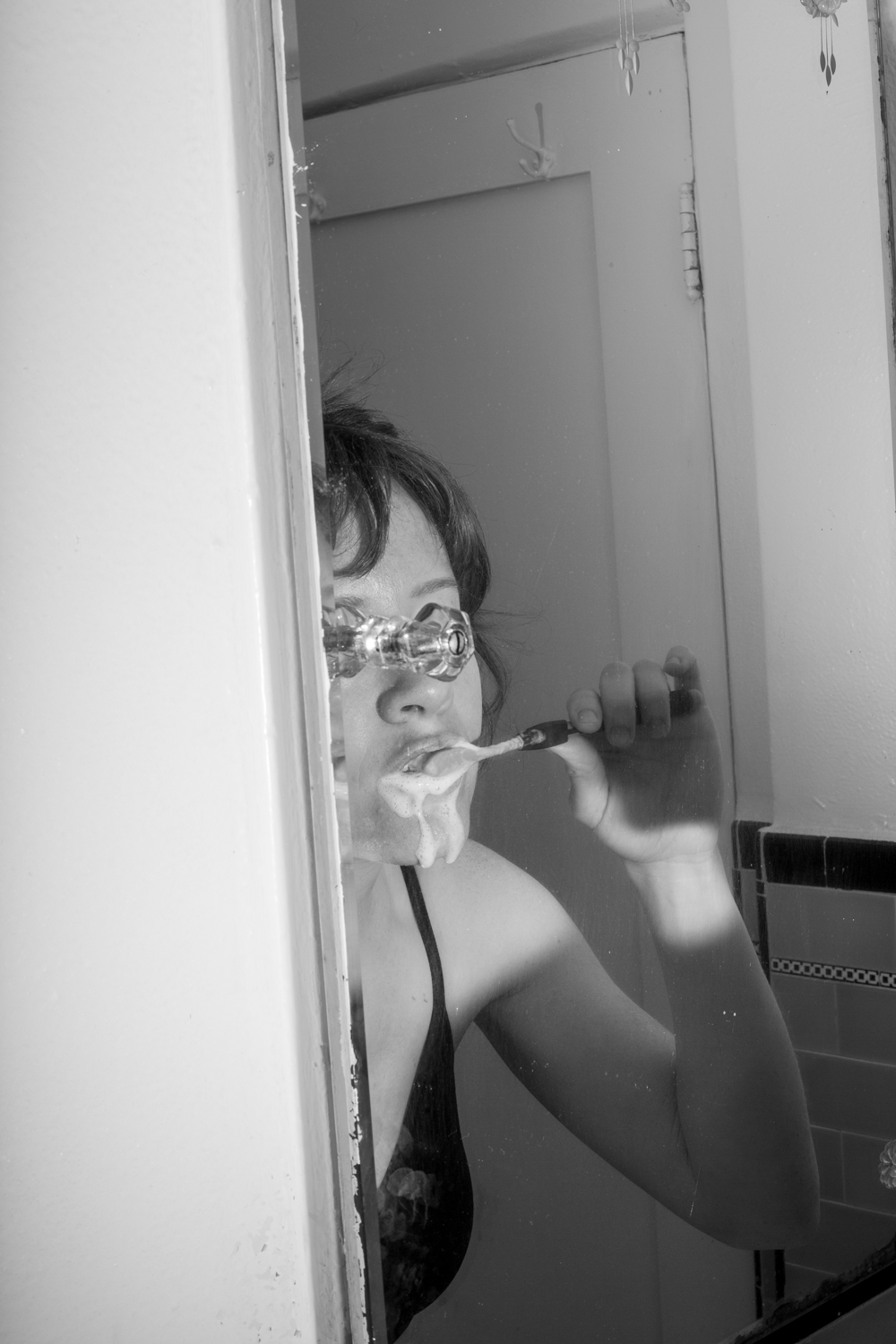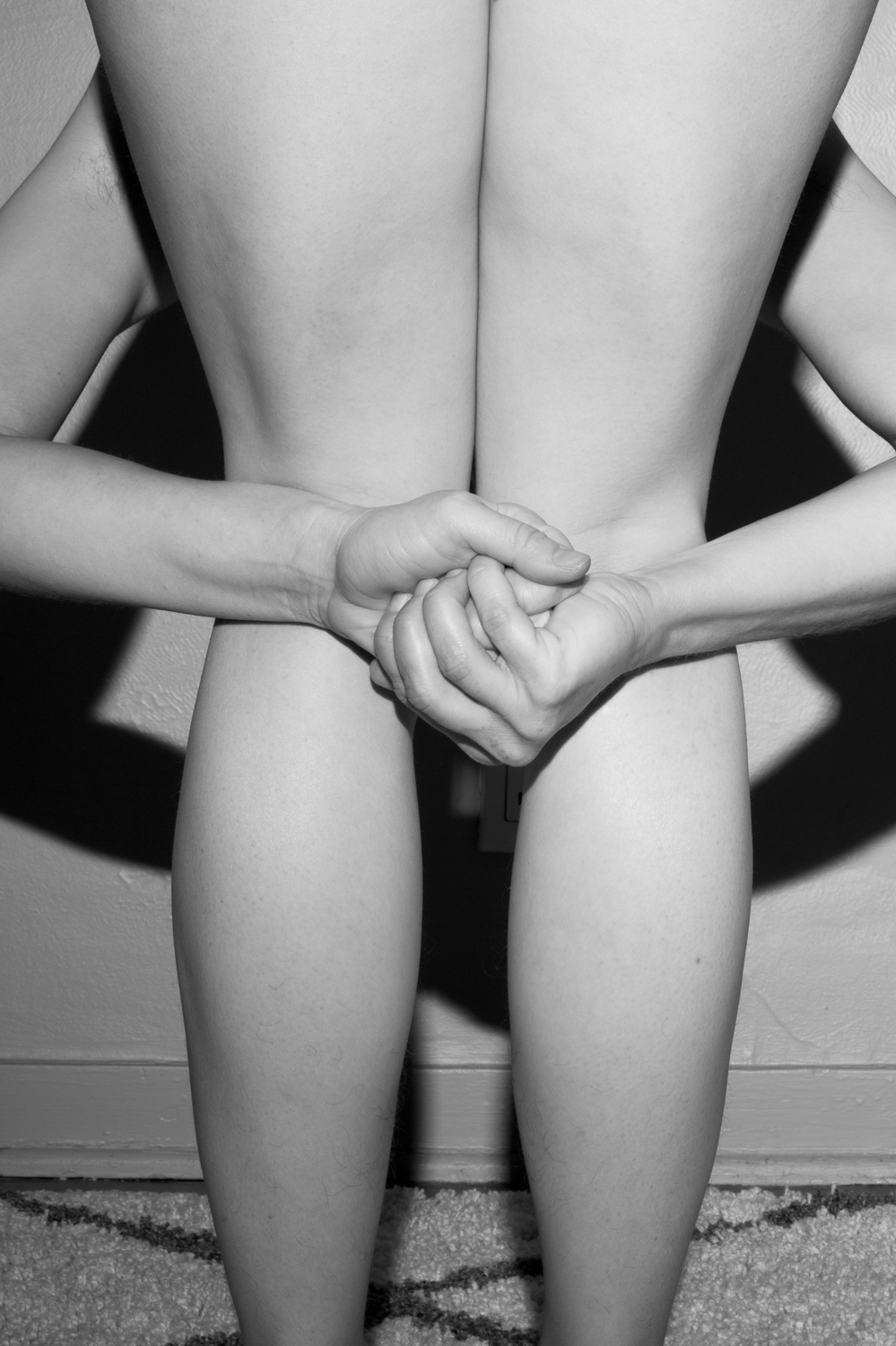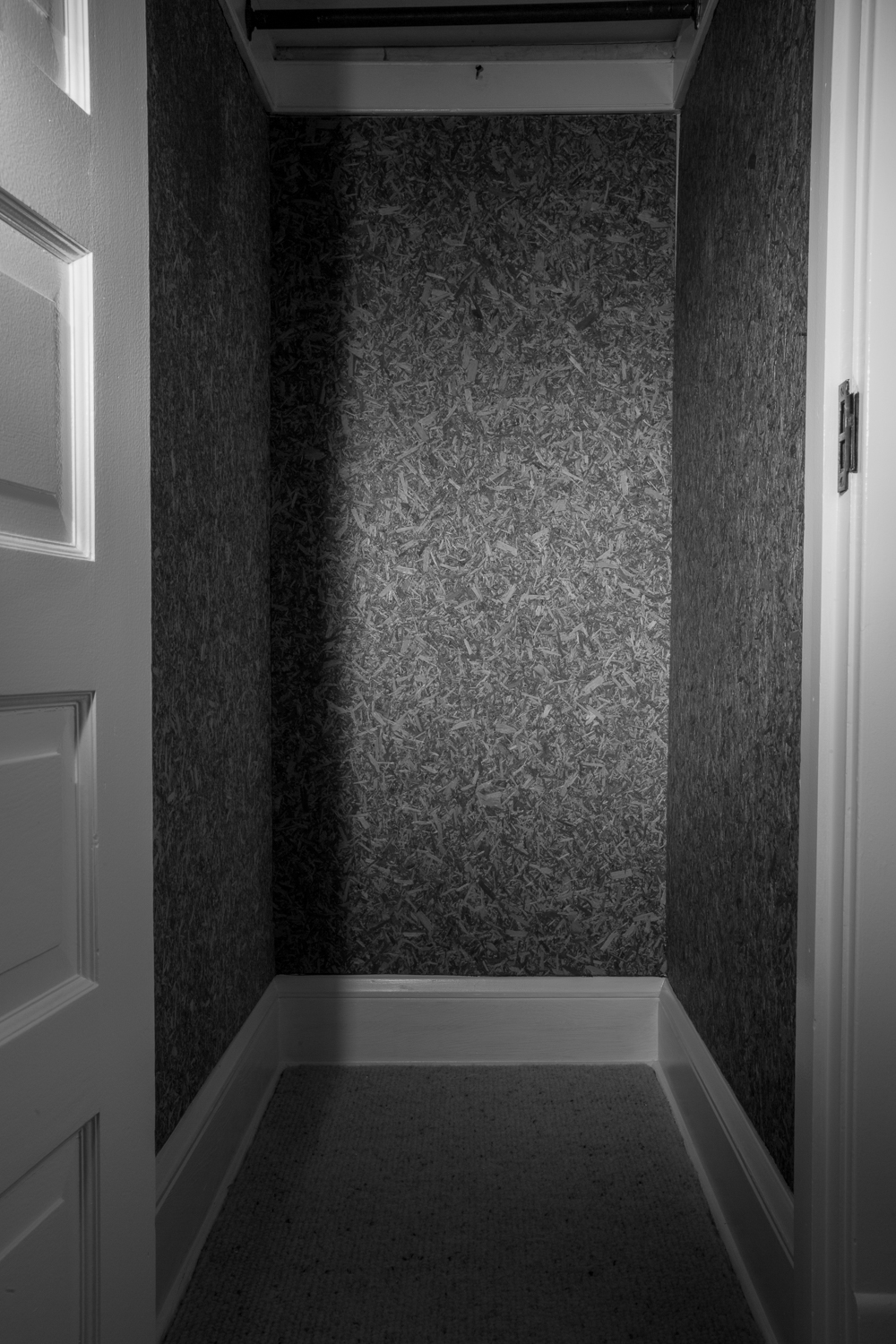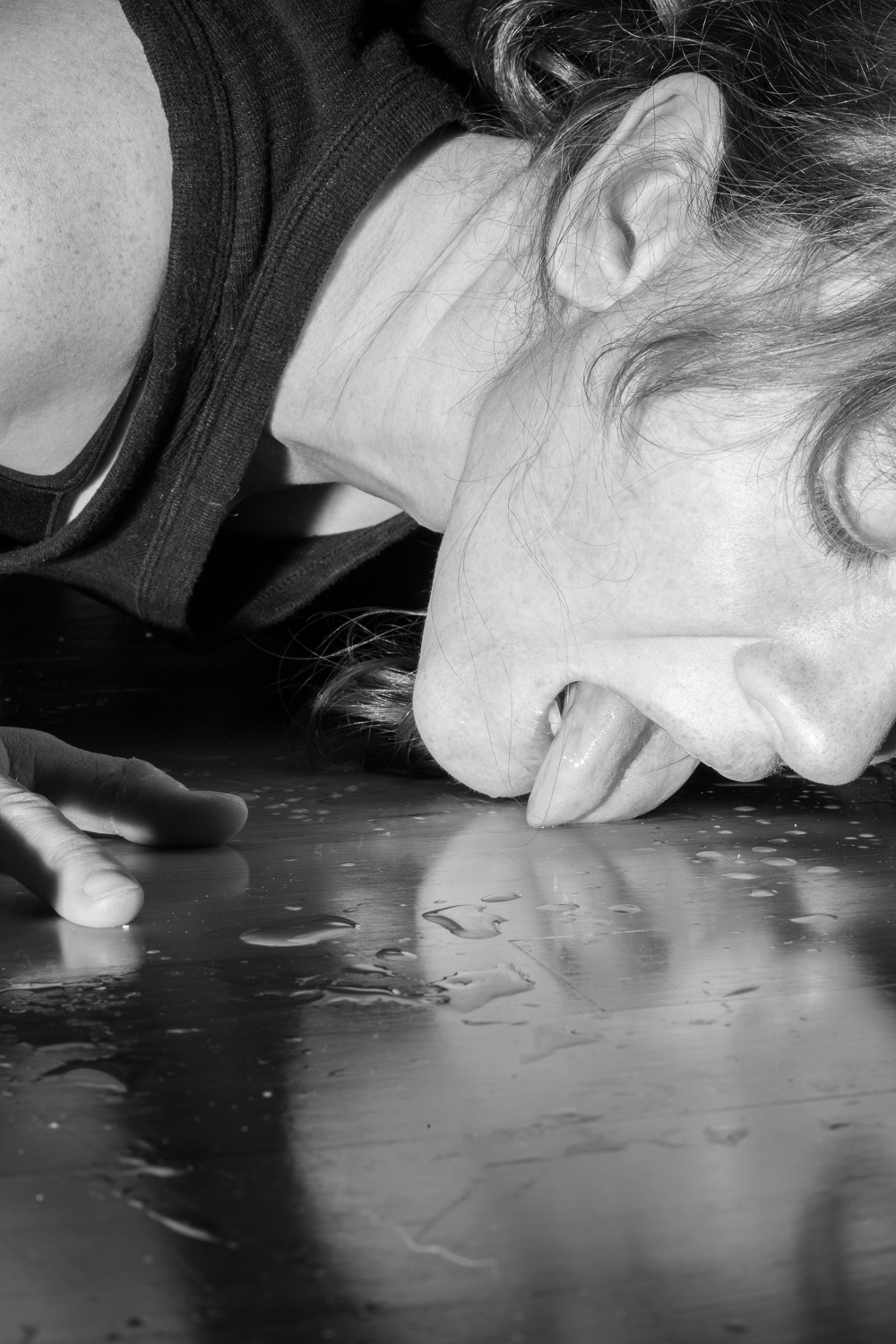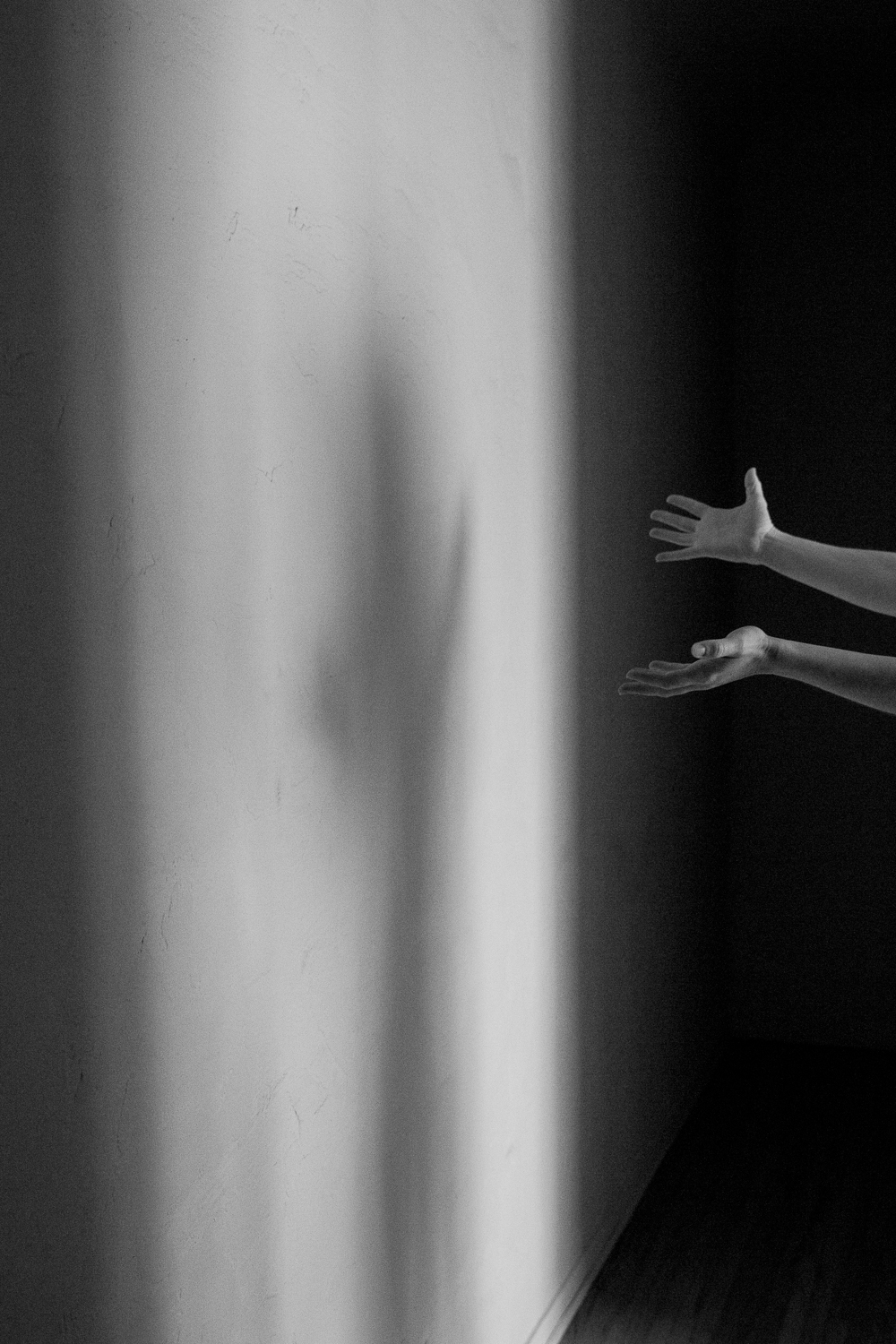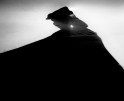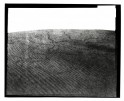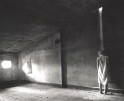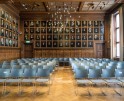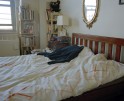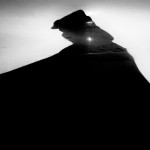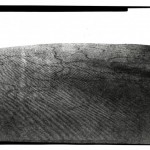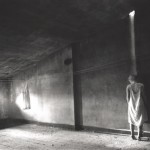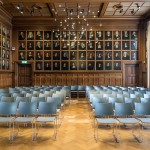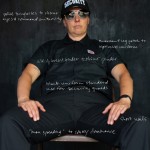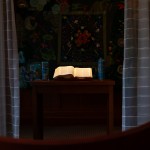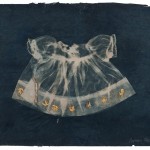Kat Bawden: Perceptual Isolation
“I realized there was a greater idea of creativity. Greater than anything I could make with just my mind or my hands… I realized if I was going to make art, it couldn’t be about a picture. It couldn’t be about something visual. It had to be about where it was really coming from.” –Tracey Emin
2020 has been, to put it mildly, a surreal year. Beyond the new realities we faced in a year of self-quarantining, isolation, and staring at the same four walls month after month, there was also an internal state of mind that creates dreams filled with anxiety and fear and a new consideration of our futures. Artist Kat Bawden has created a remarkable collection of images that speak to these states of being with her project and soon-to-be zine, Perpetual Isolation. This series of self-portraits are crafted with stark Noir lighting, creating bizarre and uncanny narratives in the style of great black and white cinema. The work shares the sensibilities of David Lynch, Hitchcock and the masters of Italian surrealism, but they are uniquely her own. As viewers, we are allowed into a psychological space between sunshine and nightmares, between memory and reality and even though there is discomfort, there is also truth.
Perceptual Isolation
The through-line of my work is an exploration of duality and liminal states. In this ongoing project, Perceptual Isolation, I explore the interplay of anxiety, trauma, and consciousness. I regularly experience sleep paralysis – hallucinatory dreams that feel very real and sensorial. During these nightmares, I’m physically paralyzed so I can’t move. Even after I wake up it’s hard to tell what was real and what was a dream. Often these nightmares replay a specific traumatic memory, one that my mind had repressed for 20 years. In these images, I seek to describe the sense of suspension between waking and sleeping as a visual metaphor for consciousness and how the mind processes trauma.
When I make these images, I photograph myself and work almost exclusively in my apartment. I believe that in order to make work about the mind that is resonant and accurate, I need to be actively experiencing the mental state I’m trying to describe. In front of the camera, I drop into a place of anxiety and push myself to a mental limit where I can reenact memories, fantasies, and nightmares. Behind the camera – as I’m setting up my shots and reviewing the images I’ve made – I switch into a directorial mode which allows me to look critically at the images with emotional distance. As I oscillate between the states of emotional immersion and critical analysis, I feel as if I am both the director and method actor in a film.
The name of this project, Perceptual Isolation, comes from a type of sensory deprivation where, instead of eliminating all sensorial input, you overwhelm one sense and it “turns off” the other senses. Most of these images were made after the onset of the Covid pandemic. I’ve experienced this time as a prolonged period of sensory deprivation – as my work and contact with other people stopped, my anxiety at times has grown so overpowering it almost mutes my other emotions.
My process is very performative and in making this project I’ve been deeply influenced by the late feminist performance artists Ana Mendieta and Carolee Schneemann, as well as the contemporary photographic artist Tarrah Krajnak’s process of involving alternative process photography with live performance. These artists use their bodies as an expansive stage for exploring trauma, memory, and emotional release, and I’m profoundly grateful for their pioneering art.
Kat Bawden is an artist who was born in Chicago in 1986 and lives in Los Angeles. Her fine art, experimental practice incorporates photography, self-portraiture, prose, and handmade zines and books. She is driven by a fascination with the mind and consciousness, an interest largely influenced by her father, a psychiatrist and trained psychoanalyst.
Kat pursued a first career in community organizing, education, and public health. During this time, she became increasingly interested in the use of documentary storytelling to create social change, especially impacted communities telling their own stories. In 2015 she left her nonprofit career to study at the Center for Documentary Studies at Duke University, where she focused on photography and participatory storytelling practices.
In 2016 Kat moved to Los Angeles and freelanced as an editorial and documentary photographer for nonprofits, brands, and publications. Around this time, Kat unearthed a repressed traumatic memory and began exploring this experience through self-portraiture and writing, catalyzing the fine art practice she has today. She continually pushes herself to explore the grey areas of the mind both through image-making and prose, as well as by reading texts on psychology, neuroscience, and philosophy.
In addition to her own art, Kat leads community storytelling projects with people in substance use recovery where she guides participants to document their lives through photography and writing. Kat also teaches photography to middle and high school students at the Los Angeles Center of Photography and is an activist involved with immigrants’ rights.
Posts on Lenscratch may not be reproduced without the permission of the Lenscratch staff and the photographer.
Recommended
-
Jonathan Silbert: InsightsFebruary 19th, 2026
-
Olga Fried: Intangible EncountersFebruary 18th, 2026
-
Anne McDonald: Self-PortraitsFebruary 17th, 2026
-
Review Santa Fe: Leslee Broersma: Tracing AcademiaFebruary 11th, 2026
-
Review Santa Fe: Ilana Grollman: Just Know That I Love YouFebruary 10th, 2026

